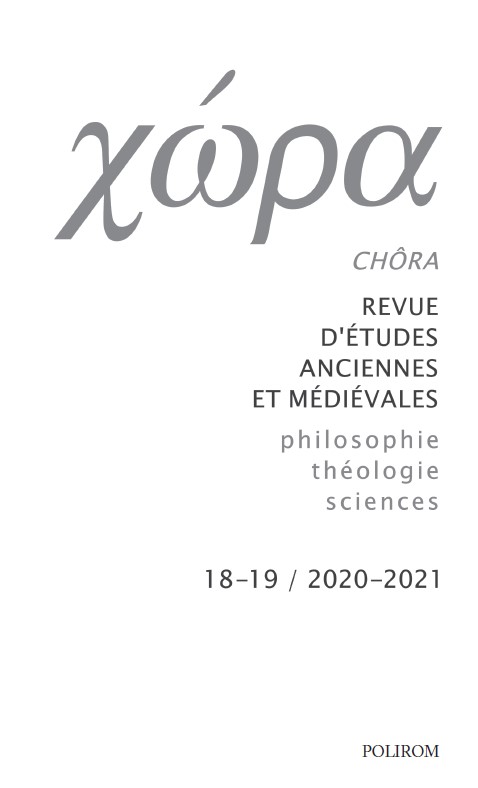L’OUSIA DANS LE THÉÉTÈTE ET LE SOPHISTE
OUSIA IN THEETETUS AND THE SOPHIST
Author(s): Elsa GrassoSubject(s): Metaphysics, Epistemology, Ancient Philosphy, Ontology, Rhetoric
Published by: EDITURA POLIROM S.A.
Keywords: Ousia; Theetetus; Sophist; logos; episteme; Republic; Platonism; eide;
Summary/Abstract: The Theætetus and the Sophist present in succession two “battles” regarding ousia. In so doing, ousia is placed at the heart of what is essential to both dialogues : in fact, ousia interconnects with the conditions of possibility, both physical and metaphysical, of logos and epistèmè. However, each dialogue brings differing conceptions of discourse and science into play, and both articulate a different train of thought regarding being. Ousia appears differently in the two dialogues and it is not the same thing as the notion of ousia, usually considered to be truly Platonic, presented in the central books of the Republic, which neither the Socrates of the Theætetus nor the Stranger of the Sophist put forward. Both present ways out of the battles, each has its own middle course. Against the thesis of the non‑immutability of ousia, the Theætetus establishes that there is not only motion. And, unlike the doctrine that reduces ousia to Forms excluding all motion, the Sophist shows that while there is not only motion, there is not only rest either. Such different orientations in the treatment of ousia, just below and just above doctrinal Platonism as it were, adjust to distinctions in the epistemological stakes : even if the Theætetus emphasizes that science proceeds from an activity of the soul bringing together “commons”, it is not yet a question, as it will be the following day, of systematically getting epistèmè to intellectually grasp a set of eidetic relationships, nor of making logos itself the elaboration of relationships. One needs to have left the field where those in favour of motion are challenged on their own ground, and in an albeit transformed field marked out by the partisans of eide which is not the field hierarchical metaphysics either, it will become possible to analyse the discourse itself as a relational framework that is consistent with the framework of ousia.
Journal: Chôra. Revue d'études anciennes et médiévales
- Issue Year: 2021
- Issue No: 18-19
- Page Range: 41-71
- Page Count: 31
- Language: French
- Content File-PDF

